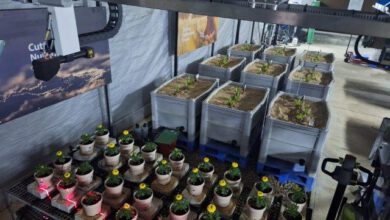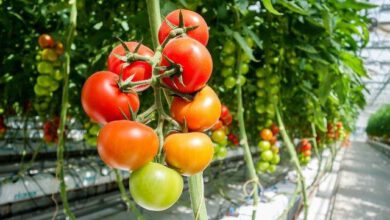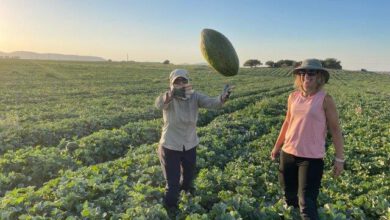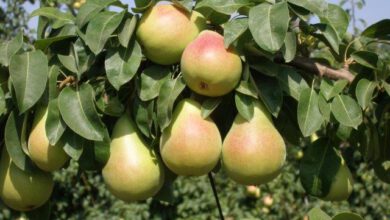Customer-centered, branding, sustainable agriculture
New trends at Fruit Logistica, Berlin, 5-7 February 2020
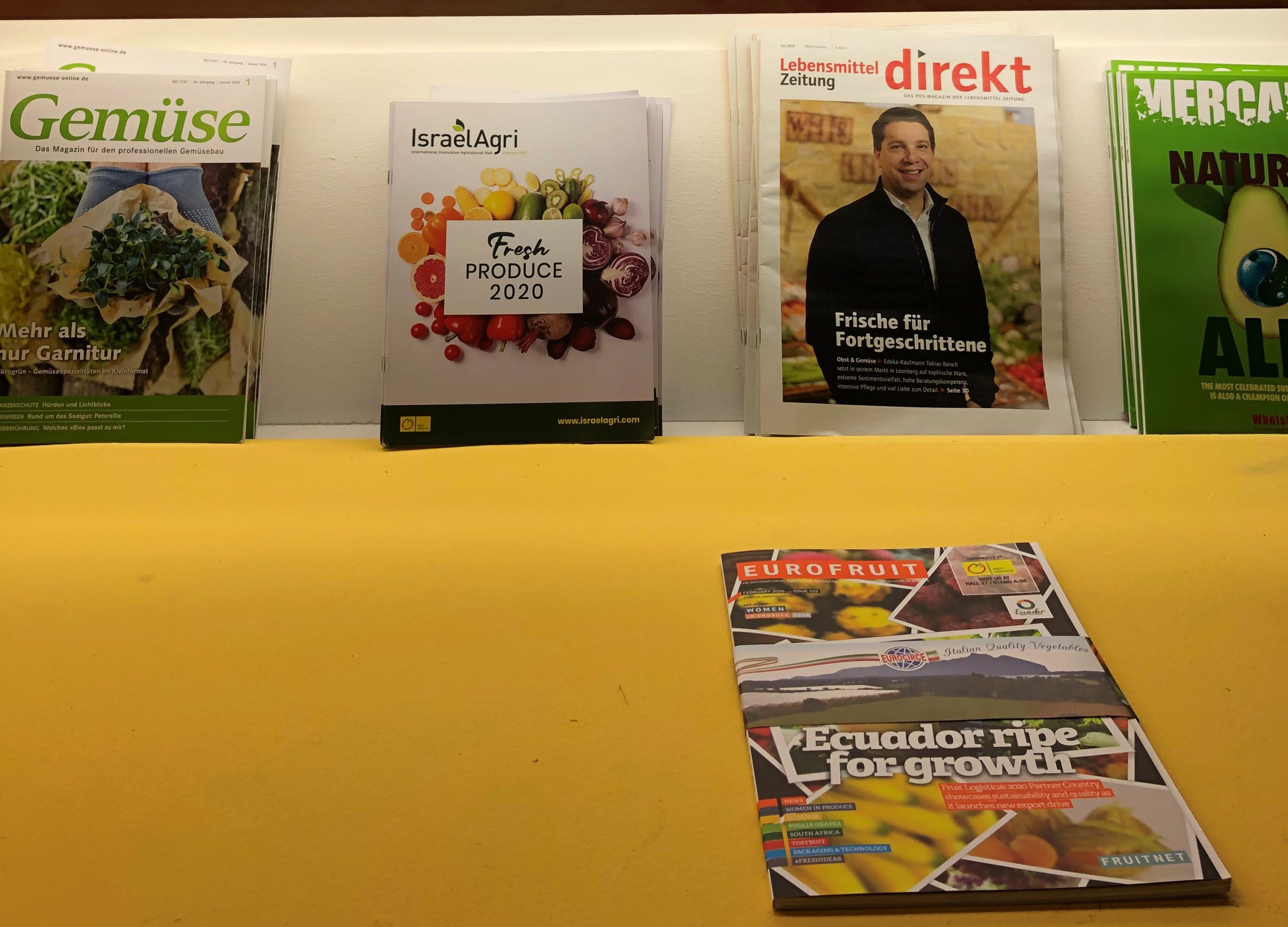
This year’s visit at Berlin’s Fruit Logistica in early February was again a joyous, colorful and exciting event, since the exhibition creates an encounter between people from the same field with a shared purpose – to develop and produce better, more nutritious fruits and vegetables, and at the same time to offer innovative solutions for all partners in the supply chain (from field to end consumer).
Over the past two years new trends are noticeable in product development and technologies, intended to provide answers to new requirements in the fresh produce market, which have resulted for several reasons:
Continuous population growth together with climate change demand greater food production per area unit. This reality offers a broad basis for development of technologies to protect existing crops, together with development of innovative cultivation technologies such as hydroponics, vertical growing, etc.
Increased awareness of food quality and nutritional values encourages the need to develop products with high nutritional value, and also to brand them to attract consumers’ attention.
Sustainable agriculture – protecting the environment encourages production of biodegradable packaging, packaging adapted to varying quantities, and development of technologies to reduce food waste.
In this article I chose to present a small number of new products exhibited at the Show by some of the companies, demonstrating some of the trends mentioned in the article’s header.
Matching varieties with consumer preferences and branding – the need for branding is reflected in seed companies and of course in production of packaging intended to support the branding process.
Origene Seeds leads in development and manufacture of products, and takes care to develop varieties that fit each market’s taste worldwide. The company exhibited a variety of products adapted to different climates in various places worldwide, to meet market demands in Europe and the U.S. throughout the year. For example:
Lajoya – a super sweet, medium-sized watermelon; Weighing 5-6 kg, it can fit whole in your refrigerator, the Lajoya is suitable for open field cultivation and net greenhouses; Brazil’s market-leading seedless watermelon, exported mainly to Western Europe.
.jpg)

Imoji – yellow, super sweet melon with shelf life that meets growers’, retailers’, and consumers’ needs alike. Its extended shelf life means that growers can harvest it in stages, rather than all at once. The Imoji’s crispiness makes it popular in Spain, since the Spanish like their melons crunchy.
As part of increasing demand for organic produce, Hishtil exhibited a large variety of organic herb plants for home cultivation. In addition, they exhibited several varieties with unique properties and variable resistance.
.jpg)
Coldasil™ – a new cultivar of basil, whose great advantage is its tolerance for low temperatures; another basil cultivar, resistant to downy mildew disease and Fusarium wilt (IR), a compact variety suitable for growing in small pots, is called
D-fencesil™.
Tolergon™ – a new cultivar of tarragon, with a unique pot appearance, distinguished by fleshier leaves, better looking, and tolerant under harsh growing conditions.
.jpg)
.jpg)
Top Seeds used the Show to introduce new cultivars, but their crowning achievement was launching a brand called Ikygai:
Ikygai is a new consumer umbrella brand for fruit and vegetables developed by Top Seeds International that focused on generation Y and launched fresh produce that truly brings value and purpose to the company’s partners, customers and consumers, combining health with beauty, taste and inspiration.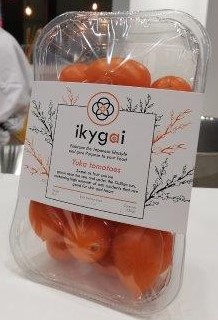
Continuing in the area of branding, with emphasis on their nutritional value, we became acquainted with Phytorich, a new brand from the Japanese seed company, Takii Seeds. The company came to the Show to promote cooperation with various players in the fresh produce sector. The brand has been marketed for years by the Company in Japan.

Takii Europe launches Phytorich, a premium vegetable concept packed with powerful phyto-nutrients. The flagship variety of the Phytorich concept is the Goshiso PR-7 tomato, part of an extensive assortment of other vegetables such as onions, carrots, squash, collards, mizuna (Japanese mustard), okra, spinach, Chinese cabbage and peppers.
The packaging sector has been challenged by the need to develop recyclable products.SORMA, the Italian automation company, exhibited a new packaging line, SORMAPEEL that can be applied to the entire range of Sorma fruit and vegetable packaging machinery.

Therefore, its adoption does not require any new investments to modify or change existing machines. Its second strong point is its performance: the new solution maintains all the content-visibility, breathability, resistance, speed and strength characteristics found in all the other Sorma packaging lines.
The innovative feature is the introduction of a “peel-off” strip of paper (hence “Sormapeel”), easily removable by consumers, making the separate recycling of the plastic and paper quick and trouble-free. What’s more, this packaging contains on average 50% less plastic than the conventional equivalent, and is completely recyclable: consisting entirely of PE (high density polyethylene) or PP (polypropylene), it can be recycled with even greater speed and ease.
Also in the packaging field, STEPAC has recently finalized development of fully recyclable Xgo™ lidding films and standing pouches to add to this category of retail-packaging products. These solutions are designed to inhibit postharvest microbial decay and extend the shelf life of extracted pomegranate arils for up to 17 days, preserving the fruit’s organoleptic properties. The lidding films are available in lightweight, easy peel and resealable formats.

The company’s comprehensive range of lightweight and sustainable packaging solutions is designed to maintain pomegranate freshness throughout all stages of the supply chain. The technology is based on a unique modified atmosphere packaging (MAP) system that reduces respiration rates and ethylene production for a combined effect of slowing down ageing and ripening. It also inhibits the proliferation of pathogens.
The sense of (corona) panic on the way to the Exhibition wasn’t felt during the Show, and as in years past, we were truly impressed by the abundance of new products and solutions presented by the companies in the area of fresh produce.
See you next year !

